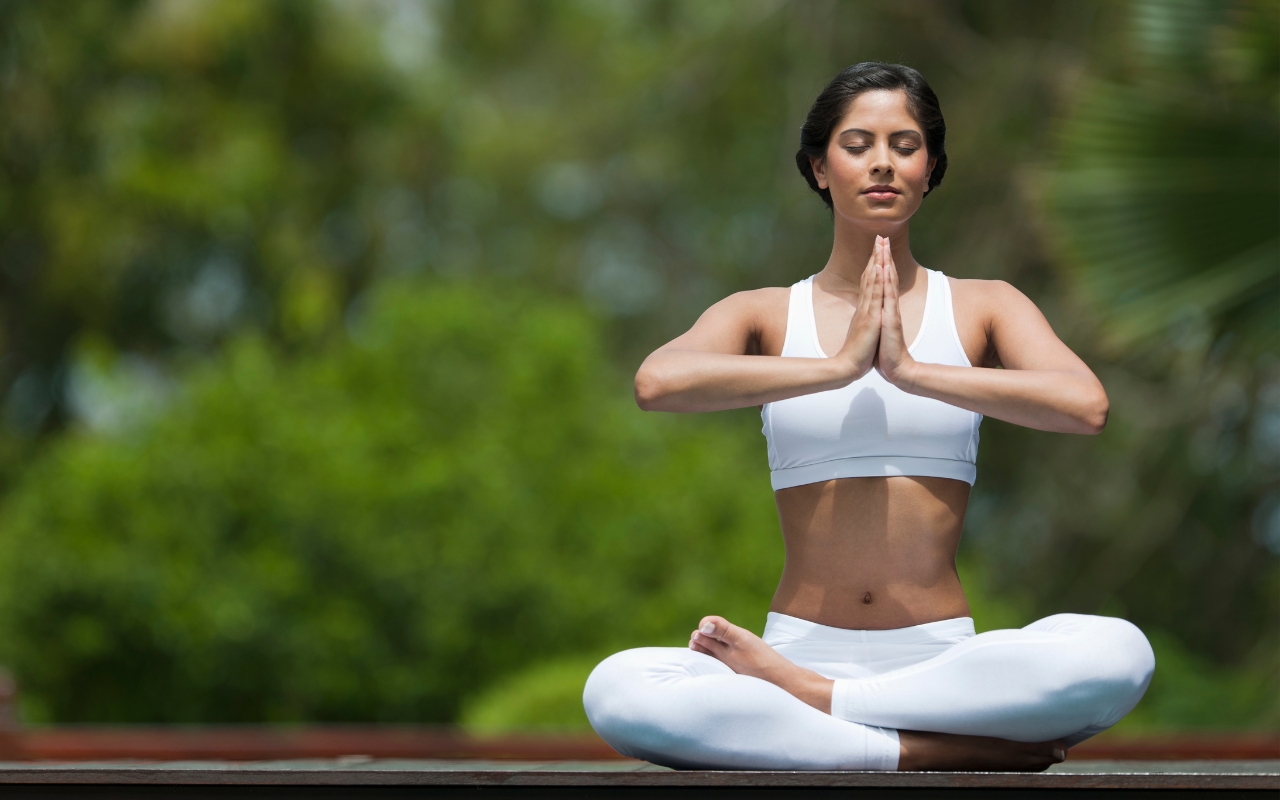In a world where stress and the hustle of daily life reign supreme, finding a sanctuary for both the mind and body becomes crucial. Yoga, an ancient practice rooted in Indian philosophy, emerges as a beacon of holistic well-being, seamlessly blending physical postures (asanas), breathing techniques (pranayama), and meditation (dhyana) to cultivate both physical strength and mental serenity. The undeniable benefits of yoga, spanning across physical, mental, and emotional health, have rightfully cemented its place in modern wellness routines. This article delves into the myriad ways yoga can transform your life, backed by research and expert insights.
Yoga has gained immense popularity globally, not just as a form of physical exercise but as a comprehensive lifestyle practice. It's much more than just stretching or bending; it's about establishing a harmony between the mind, body, and spirit. This article explores the multifaceted benefits of yoga, shedding light on how consistent practice can lead to a healthier, happier life.
Physical Benefits of Yoga
Improved Flexibility and Strength
One of the most notable benefits of yoga is the significant improvement in flexibility. Regular practice helps to stretch and lengthen muscles, leading to enhanced flexibility over time. This increased flexibility not only makes daily movements easier but also reduces the risk of injuries. Additionally, many yoga poses require the engagement of various muscle groups, thereby aiding in muscle toning and strength. For instance, holding poses like Plank or Warrior II requires considerable strength and stamina, contributing to overall physical fitness.
Cardiovascular Health
Yoga's benefits extend to cardiovascular health as well. The practice of pranayama, or controlled breathing, has been shown to improve heart rate, stroke capacity, arterial pressure, and overall cardiovascular functioning. According to a review by the Journal of Ayurveda and Integrative Medicine, yogic breathing positively influences the brain's cardiorespiratory center, thus enhancing heart health.
Bone Health
Certain yoga postures involve isometric contractions, where muscles are engaged without changing their length. This practice is particularly beneficial for bone health. For instance, poses like Plank and Warrior II help in increasing bone density. A study has shown that just 12 minutes of yoga per day can significantly improve bone health, making it a valuable practice for those dealing with osteopenia or osteoporosis.
Mental and Emotional Benefits
Stress and Anxiety Reduction
Yoga's impact on mental health is profound. The combination of physical movement, controlled breathing, and meditation creates a calming effect on the mind, significantly reducing stress and anxiety levels. Research suggests that yoga can be a valuable tool for managing anxiety symptoms and promoting mental well-being. The National Center for Complementary and Integrative Health highlights yoga's efficacy in improving mental and emotional health by relieving stress and supporting healthy habits.
Improved Sleep Quality
For many, the struggle with insomnia or poor sleep quality is a significant issue. Yoga can be a natural remedy for better sleep. Regular practice has been shown to enhance both the ability to fall asleep and the quality of sleep. Yoga nidra, a specific form of guided meditation performed while lying down, is particularly effective in promoting deep relaxation and restful sleep.
Enhanced Cognitive Function
Yoga is also beneficial for brain health. Studies suggest that practicing yoga activates areas of the brain responsible for motivation, executive functioning, attention, and neuroplasticity. This means that yoga can enhance cognitive function, improving focus, memory, and overall mental clarity. Regular practice can lead to better brain functioning and a sharper mind.
Yoga as a Tool for Chronic Conditions
Multiple Sclerosis (MS)
The loss of muscle function and coordination associated with Multiple Sclerosis (MS) can be challenging. However, yoga offers a supportive approach to managing MS symptoms. Research indicates that yoga can improve walking speed, muscle strength, and balance, which are crucial for day-to-day functioning. Additionally, the practice promotes relaxation, helping to alleviate stress and improve mood among MS patients.
Asthma and Respiratory Health
Yoga's emphasis on controlled breathing and pranayama can be particularly beneficial for individuals with respiratory conditions like asthma. Studies have shown that yoga can improve lung function, exercise capacity, and overall quality of life for asthma patients. The deep, rhythmic breathing techniques inherent in yoga practice help in enhancing respiratory efficiency and reducing symptoms.
Cancer Patient Support
For individuals undergoing cancer treatment, yoga can serve as a complementary therapy to manage symptoms and improve quality of life. Numerous studies have shown that yoga can alleviate physical and psychological symptoms, such as fatigue, anxiety, depression, and sleep disturbances, commonly experienced by cancer patients. Incorporating yoga into the treatment plan can provide a holistic approach to cancer care.
Mental Health and Trauma Recovery
Post-Traumatic Stress Disorder (PTSD)
Yoga is increasingly being recognized for its potential benefits in trauma recovery. Individuals dealing with PTSD often turn to yoga to promote mental wellness and alleviate symptoms. Although more research is needed, existing studies suggest that yoga can help reduce PTSD symptoms by fostering a sense of calm and well-being. Practices like mindful breathing and gentle postures create a safe space for individuals to reconnect with their bodies and emotions.
Depression and Anxiety
Yoga's role in managing depression and anxiety cannot be overstated. Regular yoga practice has been shown to boost mood, increase serotonin levels, and reduce symptoms of depression. By promoting mindfulness and relaxation, yoga helps individuals manage their mental health more effectively. The Mayo Clinic emphasizes the importance of finding the right yoga practice and instructor to ensure a positive experience, especially for beginners.
Lifestyle Integration and Practical Tips
Getting Started with Yoga
For those new to yoga, starting can seem daunting. However, yoga is highly accessible, with practices suitable for all fitness levels and ages. The key is to begin with beginner-friendly classes or online videos that offer clear instructions and modifications for various poses. It's essential to listen to your body and progress at your own pace to avoid injury and ensure a positive experience.
Consistency is Key
Like any other fitness regimen, consistency is crucial in yoga practice. Even short, daily sessions can yield significant benefits. Dedicating just 20 minutes a day to yoga can enhance flexibility, muscle tone, and mental focus. The Calm Blog highlights that consistent yoga practice can make a substantial difference in both physical and mental health.
Finding the Right Style
With over 100 different types of yoga, finding the right style that suits your needs and preferences is essential. Hatha yoga, known for its gentle and slow-paced approach, is ideal for beginners. On the other hand, Vinyasa or Ashtanga yoga, known for their dynamic and flow-based routines, might appeal to those seeking a more vigorous workout. Exploring different styles and instructors can help you find the perfect fit.
Incorporating Yoga into Daily Life
Integrating yoga into daily life doesn't always require a yoga mat or class. Simple practices like mindful breathing, seated stretches, or short meditation sessions can be incorporated into daily routines. For instance, taking a few moments to practice deep breathing during a stressful day can provide immediate relief and help in maintaining a calm and focused mind.
Conclusion
Yoga is a powerful practice that offers a wide array of benefits for both the mind and body. From improving physical fitness and cardiovascular health to managing chronic conditions and enhancing mental well-being, yoga stands out as a holistic wellness practice. By committing to regular yoga practice and exploring the various styles and techniques, individuals can unlock a healthier, happier, and more balanced life. The journey of yoga is a deeply personal one, and with its numerous benefits, it truly is a path worth exploring.








